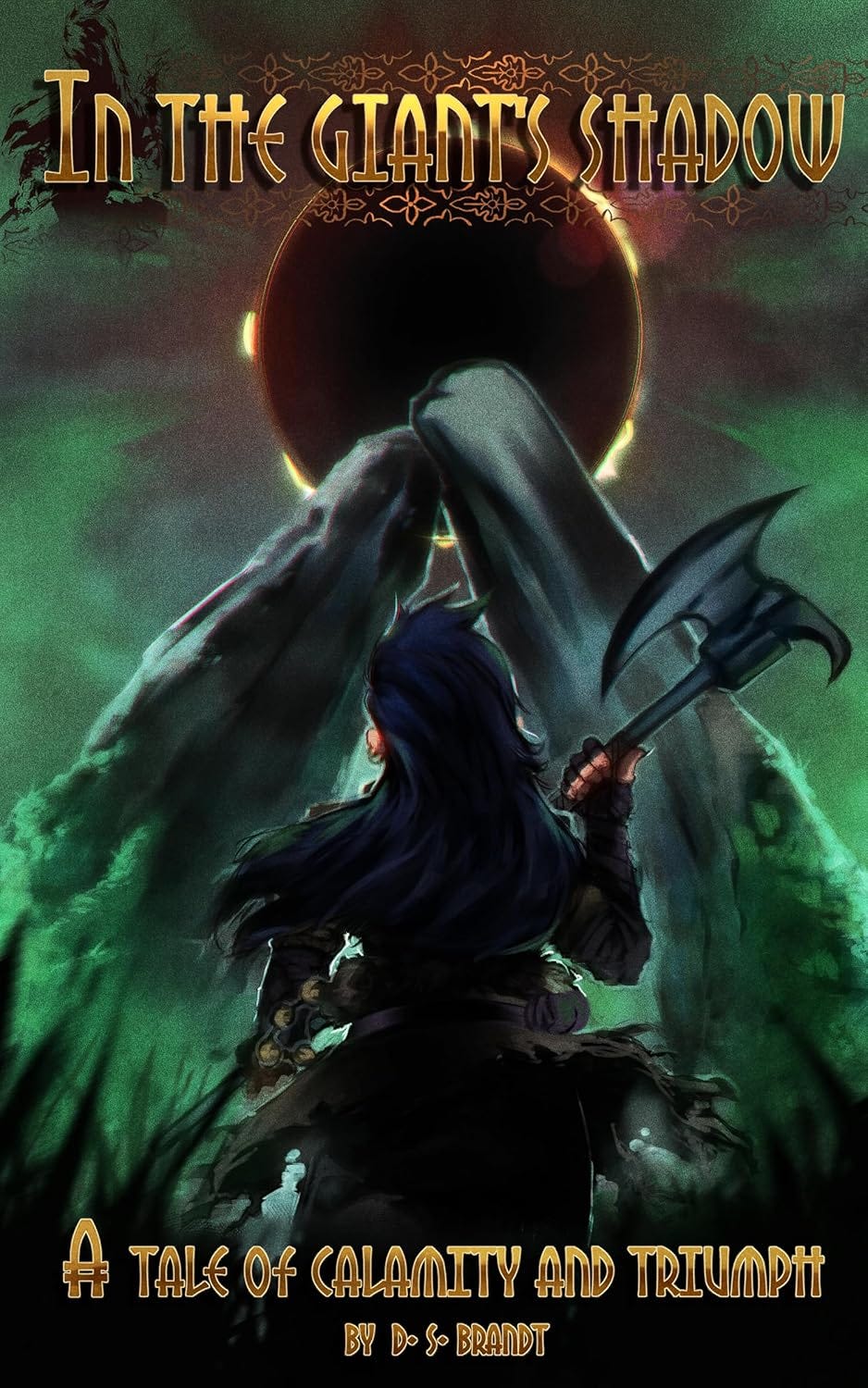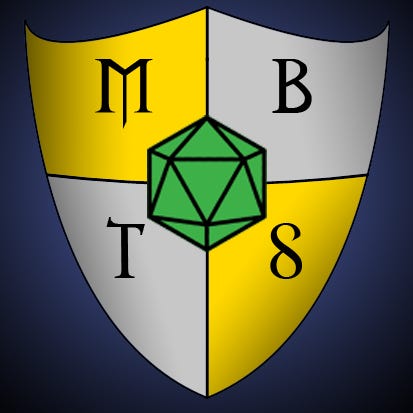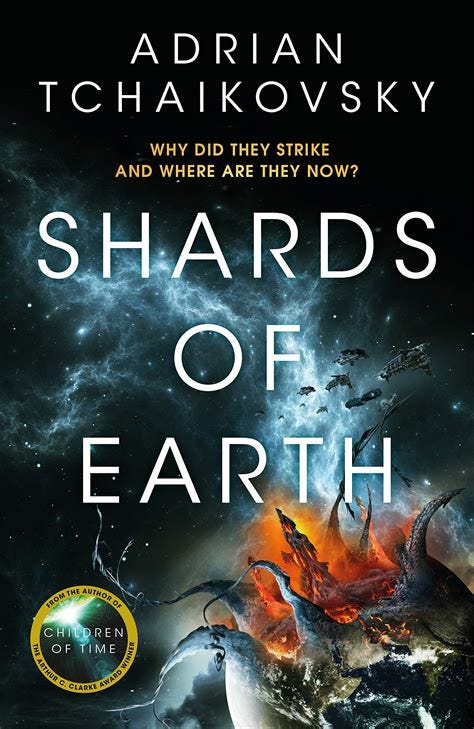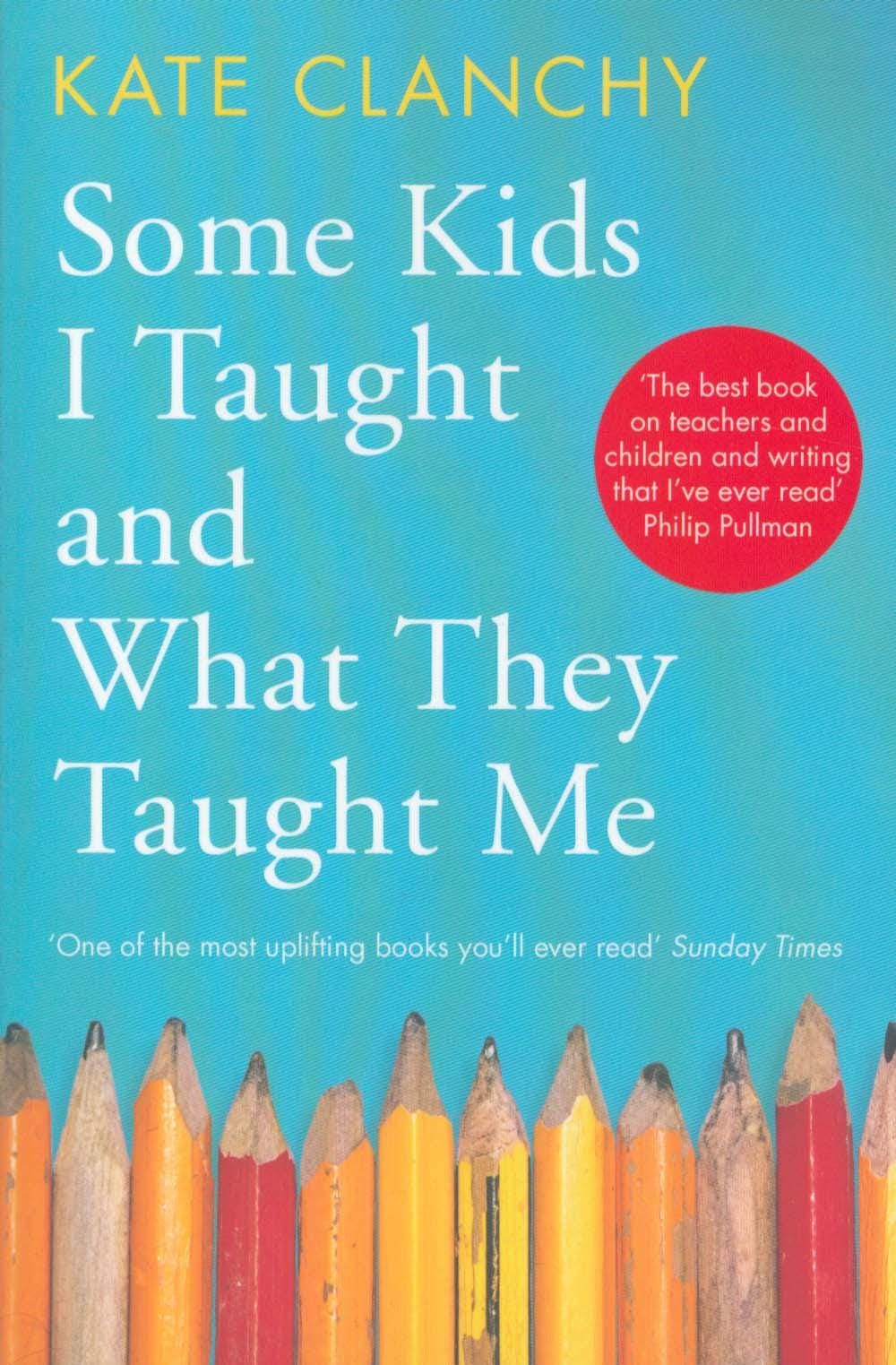The next chapter of The Atlanteans of Proxima b will be late this week due to IRL stuff.
Stories I’ve read throughout April and an attempt to write less about ones I dislike to keep it short. I was not successful.
Books Read - 11/52
In the Giant’s Shadow by D.S. Brandt (AKA:
)A dark fantasy novella in the Nordic vein. Set in Jotungatt where the graveyard dwarfs the town and a massive stone gate dominates the centre. Gaiur is led by a white raven to uncover the towns mysteries and, perhaps, save it from itself. A tale of nightmares and destiny. A solid read.
Hard to write anything else without giving spoilers as the book is only 160 pages long. There is a cute and funny dream fox called Renald.
You can find the author over at his SubStack, Tales of Calamity and Triumph, where he publishes fiction, reviews, and essays on writing, check him out, link below:
Shards of Earth by Adrian Tchaikovsky
A Mass Effect-esk science-fiction novel, first in The Final Architecture trilogy. A mysterious enemy called The Architects transforms ships, worlds, anything in their path where thought is present, into pretty and complicated shapes, including Earth which looks like an eternally blooming orchid. The galaxy features plenty of alien species, Hivers, machine-bug things, Hannilambra, crab-like creatures, Essiel, clam-like creatures and more, humanity has diverged into the Parthenon, an all-female fighting force grown in vats, and regular humans. Regular human’s discovered, and then engineered, Intermediaries to fight the Architects in unspace — which is very much like the Warp from 40K with plenty of Lovecraftian horror at the edge. The Intermediaries made contact with the Architects through the strange psychic-unspace “magic” and then the enemy that had altered Earth disappeared, but 40 years later they reappear.
There’s political posturing and rival empires and everything you’d expect from a sprawling space opera. Tightly written and, for the most part, enjoyable. The character writing is good, though a few are annoying at times and elements of the drama are over-egged so it reads like a TV soap but for the most part it’s all good. THe political aspects of the story aren’t as consistently strong. The delving into issues of identity with Nativisits, Betrayed, Spacers, Settled, Parthenon, and refugenik (what Parthenon call regular humans, meaning refuse or waste genetics) is all explored but a bit clumsy with contemporary politics seeping through in parts. But the main crux of the book is the crew of the Vulture God being contracted to find the lost ship Oumaru. What they find is an “Architected” ship, triggering panic amongst the crew and by those who contracted them. A contingency is put in place in an attempt to keep the news from spreading and this mostly works but various groups want the Oumaru which turns out to belong to a crime lord who is very keen to recover its cargo and so the story goes.
There is a twist near the end which left a sour taste because it neutered the bulk of the book and there is another twist to neuter that twist to basically make the 450 pages leading up to it a very long introduction on the main characters for the rest of the series. All in all a disappointing story with incredible world-building, an annoying combination. I will be reading the rest of the trilogy as my local library as them so will see if it improves.
Unironically used the phrase “all hell broke loose” three times, twice in the prose and once in dialogue. A weak phrase that has long been cliche and oft used where description would be better suited.
If you like Mass Effect, Star Wars, Warhammer 40K, any big space opera, then you will like this or at least elements of it.
Some Kids I Taught and What They Taught Me by Kate Clanchy
The author was cancelled for this book, at least for a short time. Picador refused to publish Kate Clanchy’s books after an article in The Guardian accused her of writing racist stereotypes because of phrases like “Ashkenazi nose”. Phillip Pullman defended her and the Society of Authors distanced themselves from him for it. Former students of Clanchy wrote letters supporting her. Different ethnicities have distinct features and that’s reality, saying it is racist for noticing is ludicrous. In fiction such details add to worlds, especially in fantasy and scifi were crafting alien races can be integral to good worldbuilding. The author was picked up by a different publisher shortly after.
The book is a collection of stories, real and amalgamated from many students, with all the identifying details sanded off. There are stories about English kids, Scottish kids, Lithuanian, Hungarian, Somalian, Indian, Pakistani, gay, straight, rich, poor kids, and everyone else. Clanchy is very liberal (at least socially), a proper 90s lefty, who is against sensitivity readers for books but also thinks multiculturalism is the best thing since sliced bread and that class can be erased through education. Hence why her article against sensitivty readers was published in UnHerd, the online magazine for people rejected by the left and right for being “out of time” with their respective audiences/political groups.
Anyway, Some Kids is a memoir about Clanchy’s time teaching though it is never clear what she learned, that always has to be inferred and guessed at. She starts the book talking about boys who were secretly, or not-so-secretly, gay then about refugees and immigrants, and then around the middle she starts to talk about education itself, from uniforms to class sizes to examinations all with a story about a former pupil, then she ties the whole thing together with poetry groups which is the best part of the book. Clanchy does not hide her views, she is anti-Christian, especially in education where she thinks nothing Christian should be taught with state money. She is confused about class, though that seems par for the course nowadays due to a mix of miseducation and a genuine, though wrong, belief in the idea that class can be removed through education and social engineering. Almost every story in the book is from a student who is either working class, living on a council estate, from a family who never worked, a refugee or an immigrant, or multiple of these. The stories that come from outside those groups are about her own children or those of friends and often end with some judgement about how dare they send their middle-class kids to middle-class schools because she thinks it deprives the working-class school of their brilliance.
The stories are interesting, the latter half of the book is more enjoyable than the first half, but I was never quite sure what she learned and then the book abruptly ends with a Syrian refugee who barely speaks any English learning the language by writing poetry and crying over all he’s been through.
It’s an odd book and one I don’t know who the audience is nor if any of the discussions would translate well beyond Britain. Easy to read and averagely written. There is no prose that will stick with you, no sentence packed with so much you have to ponder it alone, though there is prose that will stick out for the wrong reasons and phrases she repeats too often; “like stink” comes to mind.
I spent half of April with the flu and the otherhalf was quite busy and as a result I read a lot less than I expected.
Thanks for reading, see you next month for another one.










Wow, top billing on the list and plenty of kind words within a brief review to boot? Thank you very much for this, Redd. I'm thoroughly pleased you enjoyed your time with the book.